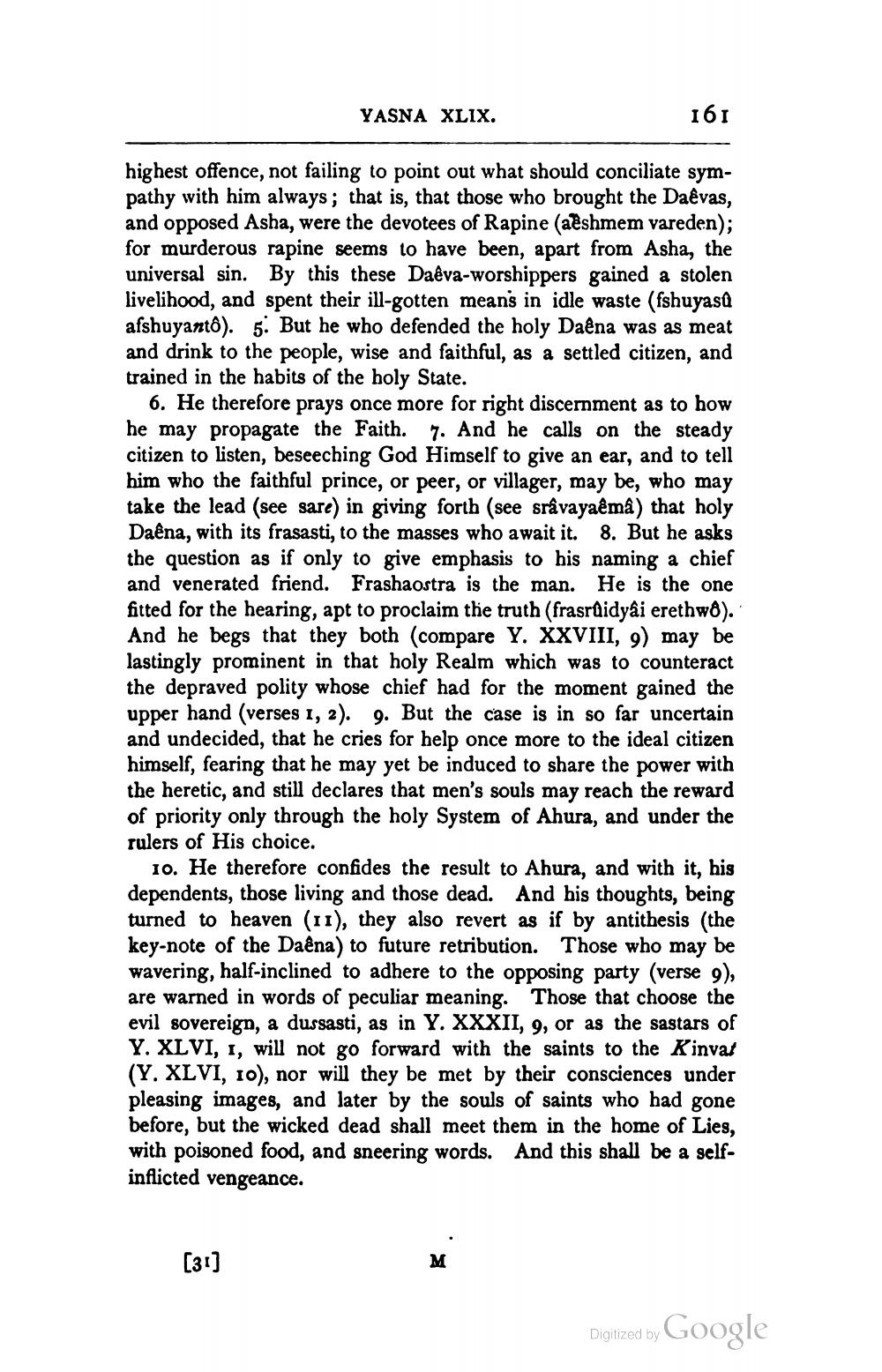________________
YASNA XLIX.
161
highest offence, not failing to point out what should conciliate sympathy with him always; that is, that those who brought the Daêvas, and opposed Asha, were the devotees of Rapine (aèshmem vareden); for murderous rapine seems to have been, apart from Asha, the universal sin. By this these Daêva-worshippers gained a stolen livelihood, and spent their ill-gotten means in idle waste (fshuyasů afshuyanto). 5. But he who defended the holy Daena was as meat and drink to the people, wise and faithful, as a settled citizen, and trained in the habits of the holy State.
6. He therefore prays once more for right discernment as to how he may propagate the Faith. 7. And he calls on the steady citizen to listen, beseeching God Himself to give an ear, and to tell him who the faithful prince, or peer, or villager, may be, who may take the lead (see sare) in giving forth (see srâvayaêmâ) that holy Daêna, with its frasasti, to the masses who await it. 8. But he asks the question as if only to give emphasis to his naming a chief and venerated friend. Frashaostra is the man. He is the one fitted for the hearing, apt to proclaim the truth (frasridyai erethw8). And he begs that they both (compare Y. XXVIII, 9) may be lastingly prominent in that holy Realm which was to counteract the depraved polity whose chief had for the moment gained the upper hand (verses 1, 2). 9. But the case is in so far uncertain and undecided, that he cries for help once more to the ideal citizen himself, fearing that he may yet be induced to share the power with the heretic, and still declares that men's souls may reach the reward of priority only through the holy System of Ahura, and under the rulers of His choice.
10. He therefore confides the result to Ahura, and with it, his dependents, those living and those dead. And his thoughts, being turned to heaven (11), they also revert as if by antithesis (the key-note of the Daêna) to future retribution. Those who may be wavering, half-inclined to adhere to the opposing party (verse 9), are warned in words of peculiar meaning. Those that choose the evil sovereign, a dussasti, as in Y. XXXII, 9, or as the sastars of Y. XLVI, I, will not go forward with the saints to the Kinvat (Y. XLVI, 10), nor will they be met by their consciences under pleasing images, and later by the souls of saints who had gone before, but the wicked dead shall meet them in the home of Lies, with poisoned food, and sneering words. And this shall be a selfinflicted vengeance.
[31]
Digitized by
Digitized by Google




